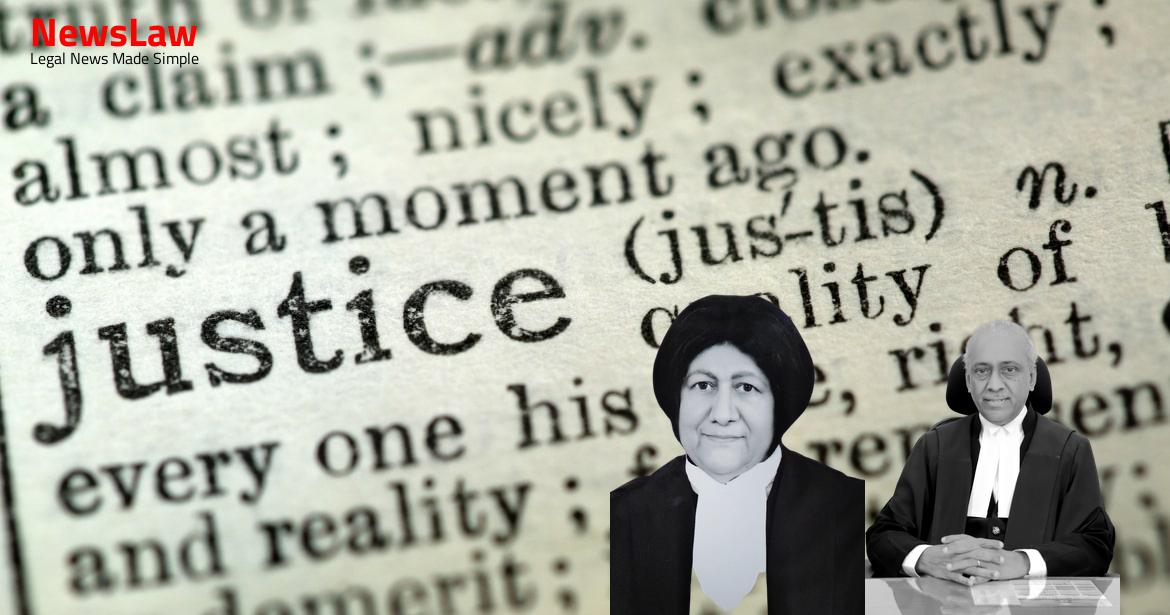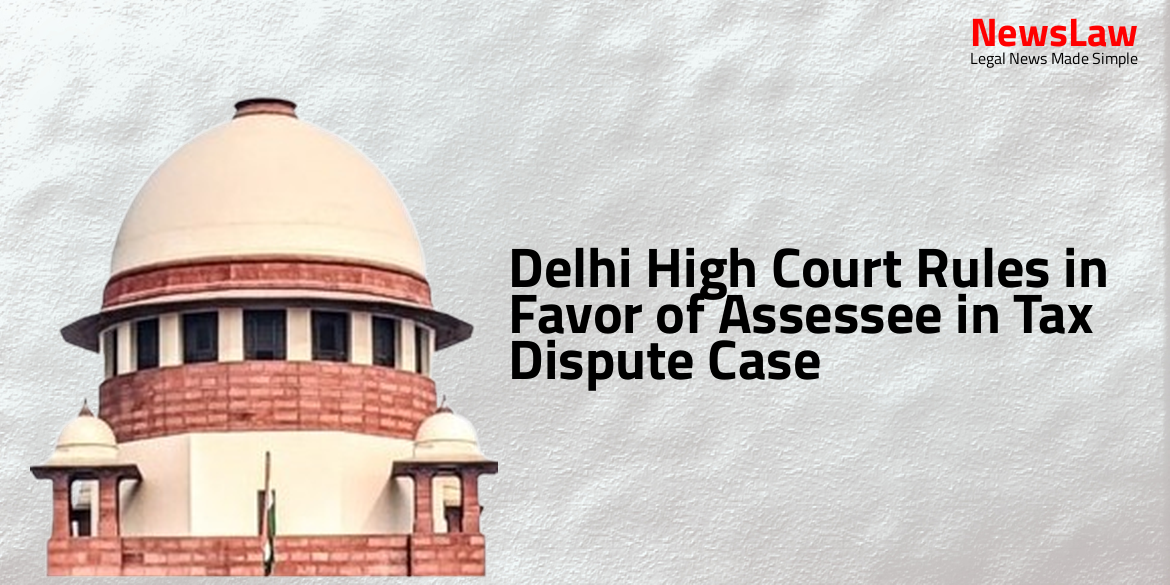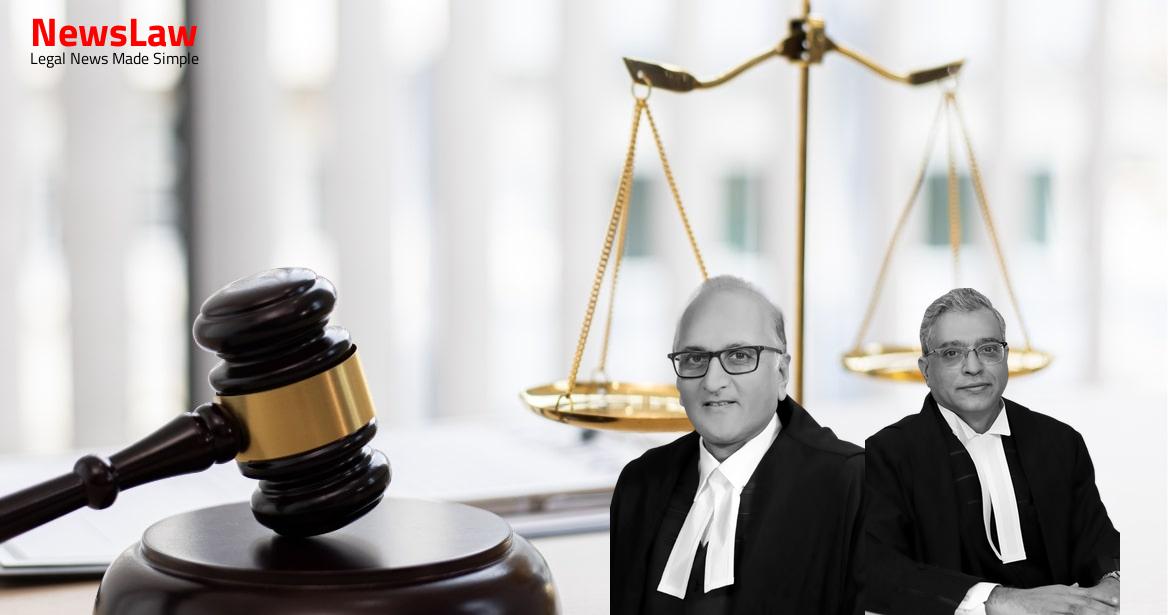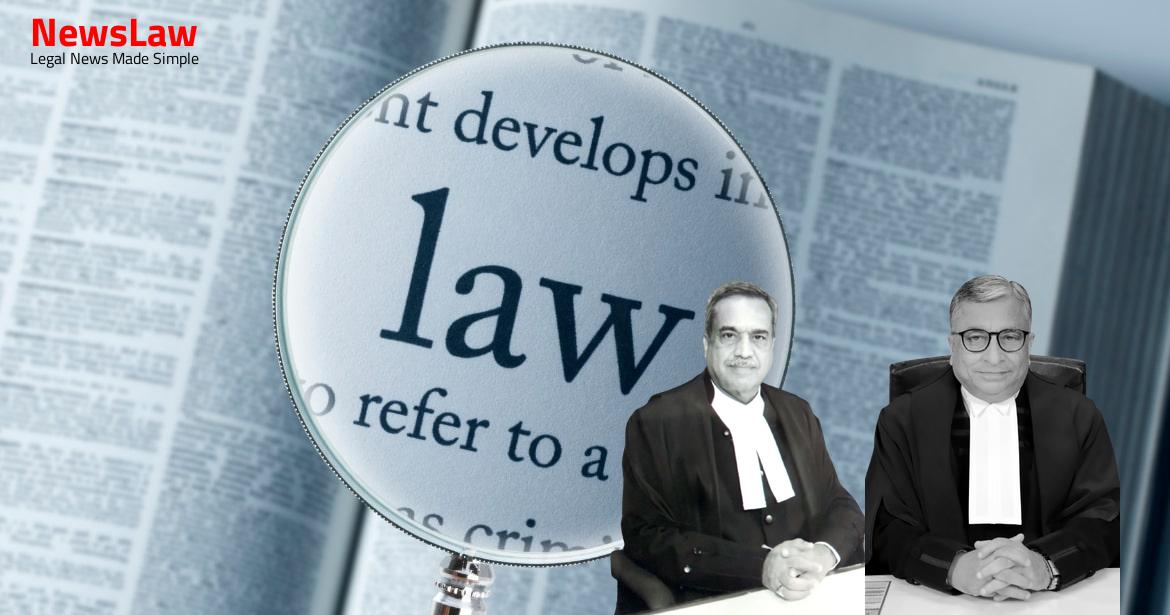Delving into the intricate legal analysis of entitlement to back wages in cases of wrongful termination, this summary focuses on the court’s approach towards determining the compensation to be granted. The analysis sheds light on the factors considered by the court in striking a balance between the employee’s rights and the employer’s obligations, providing valuable insights into the nuances of employment law.
Facts
- The High Court directed the petitioner-Bank to pay all retiral dues to the first respondent.
- The punishment of dismissal imposed on the petitioner was quashed by the court.
- The Bank’s petition for review was also dismissed by the High Court.
- The Bank claimed the enquiry report was not traceable which was seen as a strange position by the court.
- Both the Bank and the delinquent Officer filed Special Leave Petitions against the High Court’s order of reinstatement with back wages.
- The order rejecting the statutory appeal against dismissal was quashed by the court.
- The court ordered the Bank to pay a cost of Rs.50,000 to the petitioner.
- An appeal was filed by the Bank against the court’s order.
- The Officer-employee was promoted from Clerk to Manager and faced a departmental enquiry in 1988.
- The court directed 50% of total back wages to the Officer-employee.
- Consequential benefits were to be provided within two months of the order.
- The Officer filed a departmental appeal, arguing that findings of the enquiry officer were not enclosed in the final penalty order.
- The High Court closed the contempt petition as the Management of the Bank couldn’t trace the copy of the enquiry report.
- The employee was allowed to re-agitate the issue based on subsequent cause of action.
- A fresh writ petition was filed by the employee.
- The High Court directed reinstatement with 50% back wages and all consequential benefits.
- The Appellate Authority’s stand was deemed unacceptable by the High Court.
- The High Court order dated 01.10.2018 set aside the penalty order and directed reinstatement with benefits.
- The SLP dismissal on 26.08.2011 confirmed the finality of the High Court’s order.
- Regulation 9 of Allahabad Bank Officer Employees Regulations was referred to in the High Court order dated 27.04.2011.
- The Bank’s review and appeal attempts were unsuccessful.
- The Appellate Authority claimed to have sent the enquiry report to the employee’s address, which returned undelivered.
Also Read: Analysis of Financial Statements as Acknowledgment in Limitation Act Case
Issue
- The main issue to be decided is the entitlement of the Officer-employee to back wages.
- The options to be considered are zero back wages, 50% of back wages, or full back wages.
- The High Court had ruled in favor of the Officer-employee receiving only 50% of the back wages.
Also Read: Landmark Legal Analysis in Conviction Appeal Case
Arguments
- Argued that the grant of full back wages is a normal rule in cases of wrongful termination of service.
- Relied heavily on the decision in Deepali Gundu Surwase vs. Kranti Junior Adhyapak Mahavidyalaya (D. ED.) & Ors.
- Stated that the ratio of the aforementioned decision cannot be directly applied to the current case.
Also Read: Analysis of Territorial Jurisdiction in Arbitration Transfer Petition
Analysis
- The burden of proof of the existence of a particular fact lies on the person making positive averments about its existence.
- In the case under consideration, the Enquiry Officer’s report was not enclosed with the Disciplinary Authority’s Order but was subsequently sent to the appellant.
- The High Court observed that the Bank’s claim of the enquiry report not being available was not acceptable.
- The Bank failed to comply with the court’s order and was found at fault.
- The Court directed the Bank to decide on the appeal, considering the previous judgment and order.
- The court dismissed the Special Leave Petition filed by the Bank.
- The High Court granted 50% back-wages to the Officer-employee due to the Management’s fault.
- The Officer-employee raised a specific contention that the enquiry report was not furnished.
- The Appellate Authority, despite the absence of the enquiry report, attempted to justify it by stating it was sent by post and returned undelivered.
- The Officer-employee moved a contempt petition due to the inability to provide the copy of Enquiry Officer’s findings.
- The High Court allowed the writ petition filed by the Officer-employee, considering various aspects including the absence of bad motive in the departmental proceedings.
- Employee/workman must plead non-employment to claim back wages
- Employer must provide evidence if disputing payment of full back wages
- Discretion to not award full back wages if punishment is disproportionate to misconduct
- Full back wages justified if employee is not guilty of misconduct or false charge imposed
- Courts justified in directing full back wages if employer violates statutory provisions or principles of natural justice
- Superior Courts should not interfere with award of Labour Court/Tribunal based on possibility of different opinion
- Employer deemed wrongdoer in cases of illegal termination, employee/workman should receive full back wages
- Courts should not penalize litigants for delays caused by lack of infrastructure/manpower
- Denying back wages due to delay in reinstatement order is unjust to employee/workman
- Employee in disadvantaged position compared to employer in legal proceedings
- Pleadings crucial in determining entitlement to back wages
- Burden on employee to plead non-employment, then burden shifts to employer to prove gainful employment
- Union of India vs. Tulsiram Patel deals with communication of orders in disciplinary matters
- Union of India vs. E. Bashyan and Union of India vs. Mohd. Ramzan Khan refer to principles from Hindustan Tin Works case
- Court awarded lump-sum compensation in case denial of back wages was not justified
- Propositions from various judgments emphasize reinstatement with continuity of service and back wages in cases of wrongful termination
- Factors to consider in deciding back wages include length of service, nature of misconduct, and financial condition of employer
- Law on back wages became clear after Managing Director, ECIL vs. B. Karunakar case
- Officer-employee advantage seen in Allahabad Bank Officer Employees (Discipline and Appeal) Regulations 1976, Regulation 9 – Communication of orders
- Even applying the ratio from various decisions, the employee cannot be granted more than what the High Court has awarded.
- Total service period of the employee before dismissal was approximately 15 years from 1974 to 1989.
- The employee reached the age of superannuation in February 2013, remaining out of employment for 24 years.
- High Court considered this absence from employment in limiting back wages to 50%, striking a balance in the judgment.
Decision
- The Special Leave Petition of the Officer-employee has been dismissed.
- A cost of Rs.50,000/- has been imposed on the respondents to be deposited within two months.
- The High Court allowed the writ petition of the Officer-employee based on a Regulation.
- The respondents are required to provide a copy of the enquiry report within one month.
- The petitioner can file an appeal within the next month citing procedural illegality and plea raised before this Court.
- The appellate authority must decide the appeal within two months from the filing date.
- If the cost is not deposited, it will be collected through the District Magistrate.
- The petitioner can withdraw Rs.25,000/- with the rest going to the Mediation Centre.
- The balance struck by the order of the High Court dated 27.04.2011 is not disturbed.
Case Title: ALLAHABAD BANK Vs. AVTAR BHUSHAN BHARTIYA (2022 INSC 469)
Case Number: SLP(C) No.-032554 / 2018



